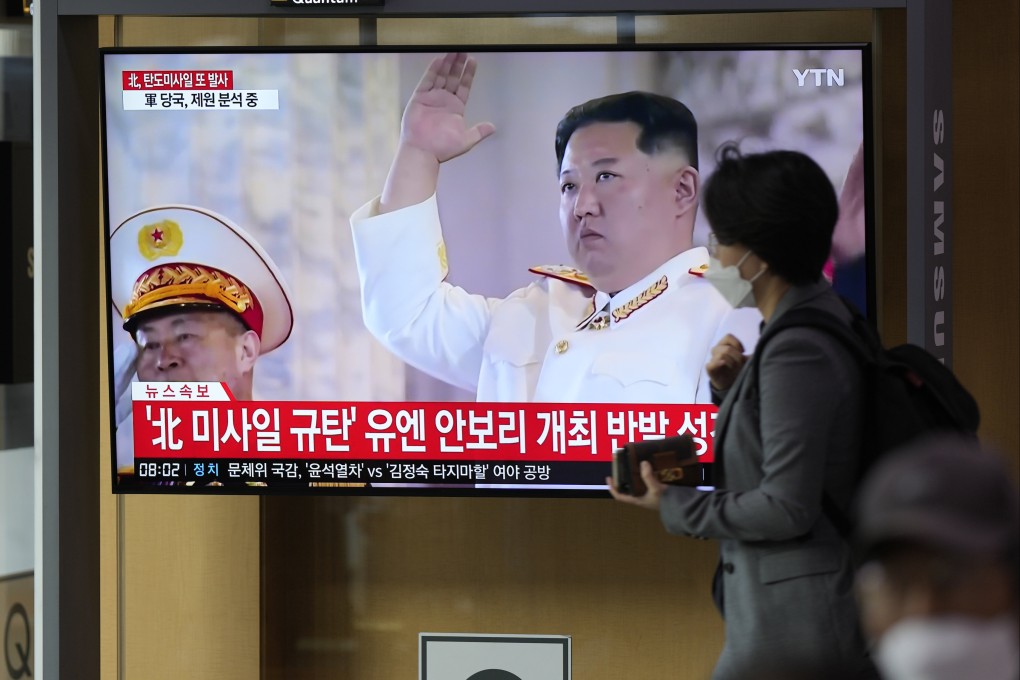Advertisement
Opinion | North Korea’s Kim Jong-un must be talked down before game of dare escalates to all-out conflict
- While the spectre of nuclear war hangs over the region, other flashpoints may explode first, drawing in not just South Korea but also Japan, China and even Russia
- Any dream of North Korean denuclearisation remains a fantasy but another round of negotiations would at least be better than war
Reading Time:3 minutes
Why you can trust SCMP
1

North Korean leader Kim Jong-un’s decision to fire an intermediate-range ballistic missile over Japan last Tuesday opens a new chapter in the confrontation that is spiralling upwards in Northeast Asia.
The missile may have landed harmlessly in the northern Pacific after travelling around 4,600km, but it raised the spectre of a North Korean nuclear attack on US bases in Guam and Hawaii. A longer-range intercontinental ballistic missile could hit targets in North America.
The United States and South Korea immediately answered the challenge by bombarding a tiny islet in the Yellow Sea and firing missiles into waters off South Korea’s eastern coast. In response, North Korea fired two short-range missiles in the direction of Japan the next day.
Advertisement
On one level, this game of dare harmed no one, not even the local residents who were frightened when a South Korean missile misfired and blew up near their homes. On another level, though, it portends far worse consequences for both Koreas and the region.
In South Korea, pressure is mounting for Seoul to develop a nuclear programme for “defence” against North Korea – just as Kim claims to need nuclear weapons to stave off a possible “invasion” by the US and South Korea. Seoul already has short- and medium-range missiles targeting anywhere in North Korea. If the South goes nuclear, you can be sure that Japan and Taiwan would not be far behind.

While the spectre of nuclear war hangs over the region, other flashpoints may explode first. Japan may decide the time has come to shoot down the next North Korean missile that flies over its territory. That won’t be easy, but the destruction of a North Korean missile would surely incite Kim to order many more “tests” of missiles, some of which might actually land on Japanese soil.
Advertisement
Select Voice
Select Speed
1.00x
